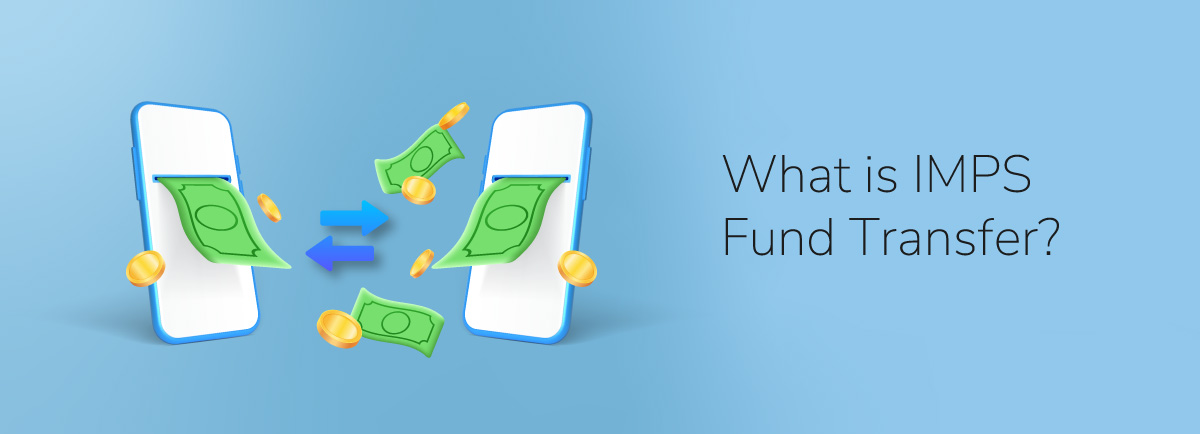
What Is IMPS? How To Register, Benefits & Charges
29 May 2024 | By INDIE
With the digital revolution in the financial landscape, money transfer has become a seamless experience. Technological developments have democratised access to financial services and streamlined the money transfer process. In India, Real Time Gross Settlement (RTGS), Immediate Payment Services (IMPS), and National Electronic Funds Transfer (NEFT) are the three main fund transfer payment systems that facilitate the speedy transfer of funds.
This article aims to provide an understanding of IMPS – What is IMPS, how to register, what are the benefits and charges, and more.
What is IMPS in banking?
IMPS, or Immediate Payment Services, is a real-time fund transfer service available 24/7 (24X7X365). The National Payments Corporation of India (NPCI) launched this payment service in 2010 to provide a robust and real-time interbank electronic fund transfer facility to users. This innovative payment service empowers customers to transfer money instantly through their banks and Prepaid Payment Instrument issuers (PPI) authorised by the Reserve Bank of India across the country.
IMPS payment system facilitates fund transfers of up to INR 5 lakhs on a real-time basis. For IMPS transactions through banks, it is important to have a savings account/current account. Here is a simple transaction flow in IMPS:
1. Transaction initiation
The originating customer initiates the IMPS transfer transaction by contacting his/her bank. There are various ways to initiate the transaction. For example, it can be initiated by giving the beneficiary's mobile number, MMID, and amount to be transferred.
2. Originating bank processes the transaction
The originating bank identifies the sender account, validates it, and then processes the transaction by sending it to NPCI. Also, sends a confirmation message to the sender via SMS.
3. NPCI plays a vital role
National Payments Corporation of India (NPCI), which owns and operates the IMPS transfer system, plays the vital role of being the coordinator of the IMPS network.
4. The beneficiary customer’s bank receives the funds
The Beneficiary customer's bank gets the credit of funds and then establishes the receiver's identification.
5. Funds credited to beneficiary customer’s account
The bank credits the money to the beneficiary customer and then sends a confirmation SMS to the receiver.
Unlike RTGS, IMPS transactions are settled on a deferred net basis. It is also important for participating banks and PPIs to have a valid banking license or the prepaid payment instruction license from the Reserve Bank of India to participate in NCPI’s IMPS system.
How to register for IMPS?
Both sender and receiver can easily register for IMPS. To initiate a transaction through a mobile channel, you need to register through your bank's mobile banking services. Then, the bank issues a Mobile Money Identifier (MMID) and MPIN to authenticate the transaction. MMID is the 7-digit number issued by banks. If you register more than one mobile number, you will have a different MMID for each number.
It is important to note that IMPS transactions initiated through bank branches, online accounts (net banking), and ATM channels do not require any prior registration.
Also read: Secure, swift, and smart: Online savings accounts demystified
What are the benefits of IMPS?
The following are the benefits of IMPS:
1. Instant transfer of money from savings account/current account
2. Safe and secure. Transactions come with unique IDs and hence can be tracked easily.
3. Cost-effective and simple to access as it incurs nominal fees, and the transfer is real-time.
4. Convenient to initiate transactions through online accounts, mobile banking, and ATM channels.
5. Immediate confirmation of the transaction to both the sender and receiver.
The charges for IMPS transactions vary from bank to bank and PPI to PPI. Hence, it is important to check the charges with your bank or PPI before you do an IMPS transfer.
Also read: 5 benefits of having a savings account
To conclude, IMPS is an innovative fund transfer system that empowers customers with speedy, secure, convenient, and cost-effective means of transferring money.
Disclaimer: The information provided in this article is generic and for informational purposes only. It is not a substitute for specific advice in your circumstances. Hence, you are advised to consult your financial advisor before making any financial decision. IndusInd Bank Limited (IBL) does not influence the views of the author in any way. IBL and the author shall not be responsible for any direct/indirect loss or liability incurred by the reader for making any financial decisions based on the contents and information.





